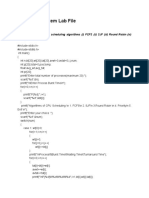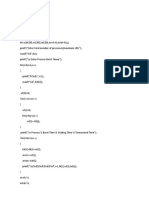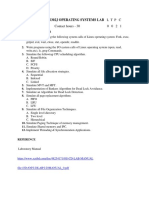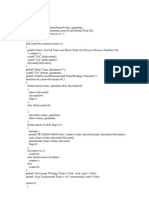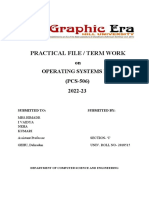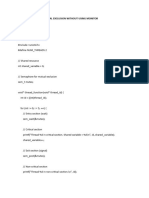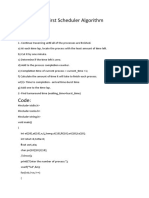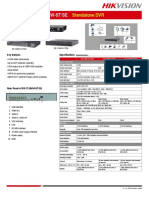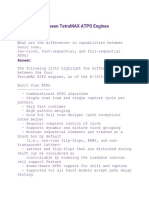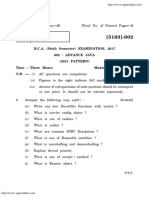0% found this document useful (0 votes)
17 views44 pagesOS-Lab Manual
The document provides C programs for various operating system concepts including process management, CPU scheduling algorithms, producer-consumer problem using semaphores, interprocess communication with FIFO, and Banker's algorithm for deadlock avoidance. It includes implementations for single and multiple processes, scheduling algorithms like FCFS, SJF, Round Robin, and Priority scheduling. Additionally, it covers semaphore-based synchronization in producer-consumer scenarios and demonstrates interprocess communication using named pipes.
Uploaded by
pallavimr6362Copyright
© © All Rights Reserved
We take content rights seriously. If you suspect this is your content, claim it here.
Available Formats
Download as DOC, PDF, TXT or read online on Scribd
0% found this document useful (0 votes)
17 views44 pagesOS-Lab Manual
The document provides C programs for various operating system concepts including process management, CPU scheduling algorithms, producer-consumer problem using semaphores, interprocess communication with FIFO, and Banker's algorithm for deadlock avoidance. It includes implementations for single and multiple processes, scheduling algorithms like FCFS, SJF, Round Robin, and Priority scheduling. Additionally, it covers semaphore-based synchronization in producer-consumer scenarios and demonstrates interprocess communication using named pipes.
Uploaded by
pallavimr6362Copyright
© © All Rights Reserved
We take content rights seriously. If you suspect this is your content, claim it here.
Available Formats
Download as DOC, PDF, TXT or read online on Scribd
/ 44






